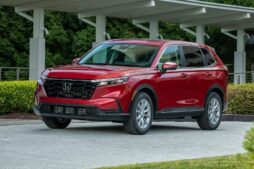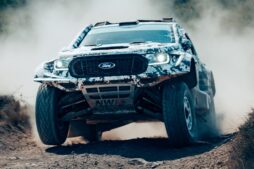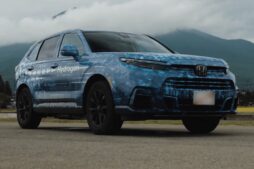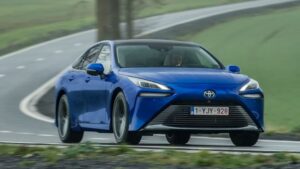2024 Dakar Rally: HySE-X1 to Compete
Investing in hydrogen technology is frequently perceived as a financial black hole with no feasible outcome. Nevertheless, some carmakers believe this could be a plausible replacement for battery-powered EVs in the voyage to a more ecologically responsible future. BMW stands firmly by the notion that fuel cell cars can exist inconsonance alongside battery-powered ones. In addition, its partner, Toyota, has another idea: employing H2 to energize an internal combustion engine.
Prototypes of the GR Yaris and GR Corolla hot hatches modified to run on hydrogen have already been put to the test in various races. Earlier this year, Toyota also formed an alliance with Japanese partners Honda, Suzuki, and Kawasaki to develop hydrogen-burning combustion engines for “small mobility.” This joint effort will be showcased at the 2023 Japan Mobility Show next week with a mockup of the off-roader.
The newest entrant into the 2024 Dakar Rally is the “HySE-X1”, a formidable all-terrain vehicle. This machine is powered by a supercharged 1.0-liter inline-four engine with 16 valves and liquid cooling. Toyota and Honda have not released the exact power output of the HySE-X1, but it weighs in at 3,306 pounds (1,500 kilograms). Its dimensions are 139 inches (3530 millimeters) long, 81.5 in (2070 mm) wide, and 67 in (1700 mm) tall.
The “HySE” (short for Hydrogen Small Mobility & Engine technology) go-anywhere vehicle is based on a chassis developed by Belgium-based Overdrive Racing. To make room for the hydrogen fuel tank and the fuel supply system, the chassis underwent some modifications.
The “Mission 1000” Challenge in Saudi Arabia is gearing up to kick off from January 5 to 19, 2024. This program is being hailed as a testing ground for energy-efficient powertrains, such as hydrogen, electric, or biofuel. While it won’t be a competition with winners and losers initially, the organizers ultimately hope to transform it into a race. Cars, bikes, and trucks will all be put to the test during this event.
As an afterthought, it is imperative to recognize the fact that hydrogen-based combustion engines have been a long existing product. The most widely recognized exemplar of this being the BMW Hydrogen 7 (E65) developed during the middle of the 2000s with a V12 motor fuelled on both hydrogen and gasoline. Notoriously, the engine was never mass manufactured; only 100 vehicles were produced for distribution to certain individuals for testing and advancing familiarity regarding hydrogen powered engines.
The car that took the place of the not much known 7 Series Hydrogen incarnation (E38) from the year 2000, made up of a giant V12, is now outdated. In 2023, BMW has polled out the iX5 experimental models and forsaken the Internal Combustion Engine in support of an alternate fuel cell hydrogen arrangement.
Sources: Toyota, Honda






